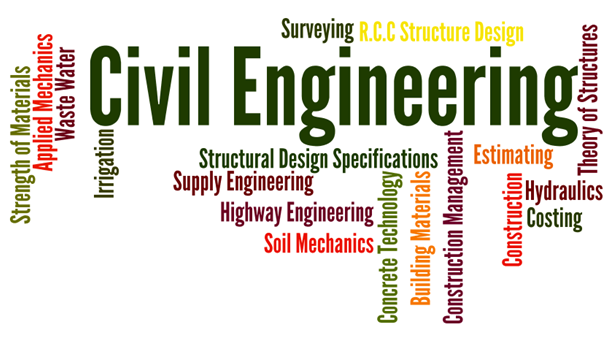

Featured AMCAT Module: Civil Engineering
About the Module

Civil Engineering module assesses a student’s skills, knowledge and understanding of the core ideas involved in the branch of civil engineering. The module focuses on testing a student on theoretical knowledge and practical concepts which will help him perform a good job as an engineer in the industry. The module is designed to assess the knowledge of the candidate about:
- Building Materials and Construction : Locally available building materials and their usability, innovative techniques for roofing, mud construction, prefabricated building components.
-
Surveying: ShellClassification of surveys, primary division of Surveying-Principle of working, chain surveying, compass survey, plane table survey, and levelling, contour survey. Areas & volumes, areas along boundaries, theodolite surveying, tacheometric surveying.
-
Applied Mechanics: An introduction to the study of engineering mechanics. A good knowledge of support reactions is also important to understand the behaviour of structures. It covers the analysis of static and dynamic systems. Determine the resultant and equilibrant of a force. Determining the reactions of simple structures using general conditions of equilibrium, deriving the forces in members of plane pin-jointed structures is tested.
-
Strength of Materials: Concept of tension, compression and shear; axially loaded members- changes in lengths of axially loaded members, torsion, shear forces and bending moments, Stresses in beams, analysis of stress and strain, deflection of determinate Beams, columns.
-
Hydraulics: Open channel flow in rigid boundary channels, Non-uniform flow, Hydraulic Machines, Turbines, Centrifugal pumps, Positive displacement machines.
-
Waste Water and Supply Engineering: Sanitary pumping, systems of sewerage, quantity of sanitary sewage, wastewater treatment, treatment of wastewater.
-
Soil Mechanics: Consolidation, compaction, shear strength, stability of slopes.
-
Concrete Technology: Cement, normal aggregate, fresh concrete, strength of concrete, mixing, handling, placing and compacting concrete, admixtures, development of strength.
-
R.C.C Structure Design: Reinforced concrete and pre-stressed concrete - structural forms - loads - serviceability, strength and structural safety - design basis - design codes and specifications, material properties: properties in compression - tensile strength - strength under combined stress - shrinkage and temperature effects - high strength concrete reinforcing steels for concrete design philosophy.
-
Irrigation: Hydrologic cycle, ground water hydrology, head works, storage works.
-
Highway Engineering: Types and component parts of pavements, stresses in flexible pavements, stresses in rigid pavements, methods of rigid pavement design.
-
Construction Management: Scaffolding/ Falsework, shoring and underpinning, formwork, engineering economics, organisation and management, materials management and inventory control, construction equipments, construction monitoring, CPM and PERT networks.
-
Theory of Structures: Concrete structures, material properties, flexural analysis and design of beams, shear and diagonal tension in beams, analysis and design for torsion, bond, anchorage and development length, serviceability, edge supported slabs, columns. Column analogy method, approximate methods of multi-story frame analysis, influence lines and moving loads, arches and frames, cable suspension bridges.
-
Structural Design Specifications: Materials and specifications, structural fasteners, eccentric connections, tension member, compression member, beams, plate girder, RC column footing, RC retaining walls, RC water tanks.
-
Estimating and Costing: Preparation of detailed estimates for building, estimation of material costs at various stages of construction, preparation of reports accompanying estimates. Valuation, method of valuation of land, method of valuation of landed property.




